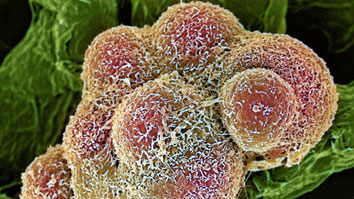PERSONALIZED medicine has proved an elusive dream. Since the decoding of the human genome, biotechnology companies have claimed that by matching a person’s genetic make-up with specialised treatments, they can tailor drugs to maximise benefits and minimise side effects. Alas, researchers have discovered that the link between a given person’s genetic make-up and specific diseases is much more complex than they had hoped. The tantalising vision remains out of reach.
A rare exception has been the success that Myriad Genetics, an American firm, has had with two genes called BRCA1 and BRCA2. Certain versions of these genes, it has been shown, are associated with a high risk of breast and ovarian cancer. The University of Utah has patented the genes and licenses them to Myriad. The firm uses that exclusivity to create expensive genetic tests for cancer risk which only it offers for sale (the patents and licensing conditions are different outside the United States).
The BRCA patents have long frustrated medical researchers, cancer lobbyists and legal activists. They claim that the firm’s grip on the two genes unlawfully stifles both innovation and basic science. Given the history of patent rulings in America, that has been a fringe argument—until now.
At face value the ruling turns America’s approach to the patent protection of genes on its head
On March 29th the New York District Court made a ruling that, taken at face value, turns America’s approach to the patent protection of genes on its head. A coalition led by the American Civil Liberties Union (ACLU) had challenged the very basis of Myriad’s patents. The nub of the case was this question: “Are isolated human genes and the comparison of their sequences patentable things?”
Until now, the answer had been “Yes”. But Robert Sweet, the presiding judge, disagreed, at least as far as the BRCA genes are concerned. After weighing up Myriad’s arguments, he ruled: “It is concluded that DNA’s existence in an ‘isolated’ form alters neither this fundamental quality of DNA as it exists in the body nor the information it encodes. Therefore, the patents at issues directed to ‘isolated DNA’ containing sequences found in nature are unsustainable as a matter of law and are deemed unpatentable subject matter.” Mr Sweet reasoned that DNA represents the physical embodiment of biological information, and that such biological information is a natural phenomenon.
As a rule, patents are not granted for rules of nature or naturally occurring phenomena, but the American patent office has allowed genes to be patented if they are isolated and “purified.” Perhaps no longer, if this decision is upheld. The ACLU gleefully declared that this ruling “marks the first time a court has found patents on genes unlawful and calls into question the validity of patents now held on approximately 2,000 human genes.”
It is clear that the judge has the history books in mind
So is this really such a landmark ruling? It is clear that the judge has the history books in mind. His ruling cites Stephen Breyer, a member of America’s Supreme Court, who argued in a dissenting opinion in 2006 that “sometimes too much patent protection can impede rather than ‘promote the Progress of Science and useful Arts,’ the constitutional objective of patent and copyright protection.”
However, the majority of the Supreme Court did not agree with Justice Breyer. Dianne Nicol, a professor of law at the University of Tasmania, observes that “this case turns on whether an isolated gene sequence has markedly different characteristics from a gene that occurs in the human body. The judge in this case has said it does not have different characteristics but it will be interesting to see if the higher courts agree with that.”
This week’s ruling, though ground-breaking in some ways, is not binding on other federal courts or on other kinds of genetic patents. What is more, Myriad will appeal to the higher courts, and the case may even end up at the Supreme Court. The odds probably remain in favor of the existing regime, but it is just possible that Judge Sweet has put an irreparable chink in Big Biotech’s armor.
